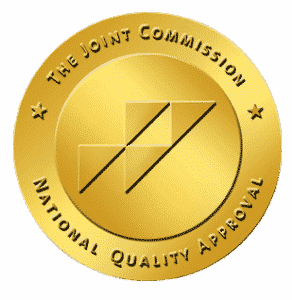Cocaine is a dangerous drug that has been responsible for countless overdoses and substance abuse issues. It works by stimulating feel-good chemicals in the brain, making the body want more of the drug once its effects wear off. It also produces withdrawal symptoms which further adds to its addictive potential.
This article will answer the question, how does cocaine affect the body, so you better understand how it can be detrimental to health and wellness?
What is Cocaine?
Cocaine is a stimulant drug sourced from the coca plant in South America. For thousands of years, indigenous people in the region would chew on the leaves of the plant to enjoy the drug’s energizing effects.
Eventually, cocaine was introduced into the world of medicine. It was used mainly as a painkiller during surgeries. It was also included in elixirs and was one of the main ingredients in the original recipe of Coca-Cola.
Over time, people began to realize cocaine’s potential for addiction and the dangers of long-term use. The U.S. government made cocaine illegal, but, unfortunately, that did not end its use. However, it is still sold on the streets by dealers who often mix it with talcum powder, baking soda, methamphetamines, and other illicit substances, making it even more dangerous.
How Does Cocaine Affect the Body?
When cocaine enters the body, it increases levels of dopamine in the brain. This is a feel-good chemical that boosts feelings of happiness, energy, and alertness.
Once the drug wears off, it is natural for the person to want more of this euphoric feeling. If they give in to their desires and continue using the drug, they will begin to build up a tolerance. They will need to take more of the drug to get the same results.
Over time, the body will get used to having the drug in its system. When the drug is not present, it will exhibit withdrawal symptoms that are not pleasant to deal with.
The person knows the only way to get rid of these symptoms is to do more of the drug. This will keep them in a vicious cycle of addiction.
What are the Signs of Cocaine Use?
Common cocaine use symptoms are as follows:
- Sensitivity to touch, sight, and sound
- Feelings of euphoria
- Increased alertness
- Anger and irritability
- Decreased appetite
- Decreased need for sleep
- Lack of self-care
- Inflated sense of ego
- Feelings of invincibility
- Financial problems
- Engaging in dangerous and dishonest behavior
- Dilated pupils
- Troubled relationships
- Increased libido
- Paranoia
- Withdrawal from society
If the drug is used long-term, more serious cocaine symptoms may appear. These include:
- Tachycardia
- Hypertension
- Damage to the nasal passages
- Loss of smell
- Chronic runny nose
- Difficulty swallowing
- Sexual problems in men
- Hallucinations
- Delusions
- Constriction of blood vessels supplying blood to the heart and brain
- Convulsions and seizures
- Headaches
- Lung damage
- Mood disorders
- Headaches
- Convulsions and seizures
- Cardiovascular issues
How to Find Cocaine Rehab in Malibu, CA
There are plenty of cocaine rehabs in the So-Cal area, including several in Malibu, CA. But finding the one that’s right for you is not so easy. You must consider the atmosphere in the facility, the type of care offered, the expertise of the staff, the cost of care, and more.
Finding the perfect facility may require extensive research. But you can save yourself time by contacting Rise in Malibu first for Southern California addiction treatment.
Rise in Malibu is a luxury rehab facility in Malibu offering private en-suite rooms with breathtaking ocean views. We provide a high level of care with triple board-certified doctors and psychiatrists and round-the-clock nursing. We take a customized dual diagnosis approach that simultaneously treats the addiction and its underlying cause.
Cocaine addiction is not easy to deal with. Rise in Malibu will provide you with the tools you need to overcome your dependency issues and maintain sobriety long-term. Contact us to find out how to move forward with your recovery and achieve a higher quality of life.







